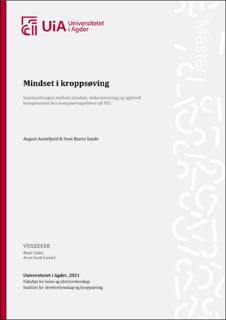| dc.description.abstract | Physical education is among the most liked subjects in school. Despite that, studies claim that students' perceived well-being in physical education is decreasing with age (Moen, Westlie, Bjørke & Brattli, 2018). Additionally, we have experienced difficulties promoting lifelong motivation for physical activity to some students while teaching physical education. The purpose of this study was to investigate the relationship between mindset, goal orientation and perceived competence, and how these variables are affected by students' amount of physical activity, participation in sports and gender. The findings could create a change in how we perceive and understand student’s behaviour when facing challenges and enhance the competency regarding motivational factors for participation and well-being in physical education. This cross-sectional study examined 218 first-year students from two upper secondary schools (74 boys and 143 girls). Our findings indicate that growth mindset, task orientation and ego orientation have a positive relationship with perceived competence, while fixed mindset has a negative relationship. Furthermore, task orientation has a positive relationship with growth mindset and a negative relationship with fixed mindset. In addition, students who actively participate in sports and those who are physically active score higher on growth mindset, task orientation, ego orientation and perceived competence. Finally, we found gender differences regarding mindset, goal orientation and perceived competence. Generally, it seems like growth mindset, task orientation, high amount of perceived competence, participation in sports and a high amount of physical activity facilitates for each other, while fixed mindset, ego orientation, low amount of perceived competence, and low amount of physical activity facilitates for each other. Keywords: goal orientation, mindset, perceived competence, physical activity, sport participation | en_US |

